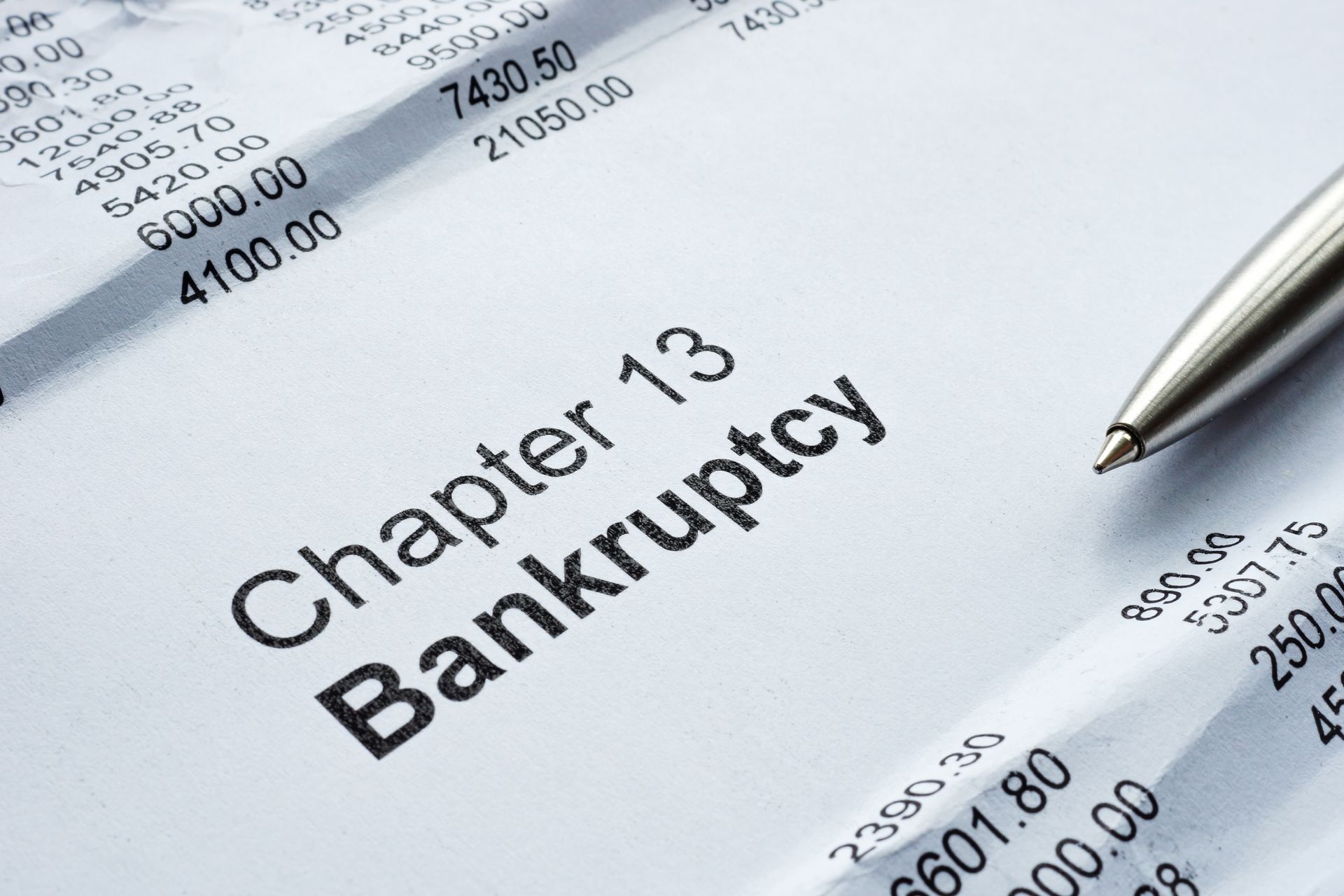The Benefits of Filing Chapter 7 Bankruptcy: A Path to Financial Freedom
The Benefits of Filing Chapter 7 Bankruptcy

Are you overwhelmed by debt and seeking a fresh start? Chapter 7 bankruptcy might be the solution you need. Often referred to as a “liquidation bankruptcy,” Chapter 7 is one of the most effective ways to eliminate unsecured debts like credit cards and medical bills. While bankruptcy can seem intimidating, it’s a powerful legal tool that provides significant benefits for those struggling to regain financial stability.
In this blog, we’ll explore the key benefits of filing for Chapter 7 bankruptcy and how it can help you take control of your financial future.
What is Chapter 7 Bankruptcy?
Chapter 7 bankruptcy is a legal process that allows individuals to discharge most unsecured debts, providing a clean financial slate. Unlike Chapter 13 bankruptcy, which involves a repayment plan, Chapter 7 focuses on liquidating non-exempt assets to pay creditors. In most cases, individuals can retain their essential assets due to exemptions provided under state or federal law.
The Key Benefits of Filing Chapter 7 Bankruptcy
1. Elimination of Unsecured Debts
One of the most significant advantages of Chapter 7 bankruptcy is the discharge of unsecured debts, including:
- Credit card balances
- Medical bills
- Personal loans
- Payday loans
This means you are no longer legally obligated to repay these debts, offering immediate relief from financial burdens.
2. Immediate Relief Through Automatic Stay
When you file for Chapter 7 bankruptcy, an automatic stay goes into effect. This legal protection halts:
- Wage garnishments
- Collection calls and harassment from creditors
- Foreclosure proceedings
- Evictions
- Lawsuits related to debt collection
The automatic stay provides breathing room, allowing you to focus on the bankruptcy process without creditor pressure.
3. A Fresh Financial Start
Chapter 7 bankruptcy wipes out most unsecured debts, giving you a clean slate to rebuild your financial future. It’s an opportunity to create a new budget, establish better financial habits, and start anew without the weight of overwhelming debt.
4. Quick Resolution
Compared to other bankruptcy types, Chapter 7 is a relatively quick process. Most cases are resolved within 3 to 6 months, allowing you to move forward with your life without prolonged legal proceedings.
5. Protection of Essential Assets
Contrary to common myths, filing for Chapter 7 bankruptcy doesn’t mean losing everything. Exemptions protect essential property, such as:
- Your home (up to a certain value)
- Vehicles needed for work
- Retirement accounts (e.g., 401(k)s, IRAs)
- Personal belongings and household goods
Your attorney will help you understand which assets are protected under state or federal exemption laws.
6. Freedom From Debt Collection Harassment
Before filing bankruptcy, many people endure relentless calls and letters from creditors. Filing Chapter 7 puts an end to this harassment immediately, giving you peace of mind.
7. Improvement in Credit Over Time
While Chapter 7 bankruptcy affects your credit score initially, it can be the first step toward rebuilding credit. By eliminating overwhelming debt, you can start with a clean slate and focus on positive financial habits. Many individuals find their credit improves within a year or two of filing.
8. No Repayment Plan Required
Unlike Chapter 13 bankruptcy, which involves a 3- to 5-year repayment plan, Chapter 7 requires no long-term payment obligations. Once the court discharges your debts, your responsibility for them is eliminated.
9. Ability to Retain Income After Filing
After filing Chapter 7, your post-filing income is not subject to creditor claims. This allows you to keep future earnings and rebuild your financial stability without the pressure of repaying past debts.
Who Should Consider Chapter 7 Bankruptcy?
Chapter 7 bankruptcy is best suited for individuals who:
- Have significant unsecured debts, such as credit cards or medical bills.
- Lack sufficient income to repay debts through a repayment plan.
- Are facing wage garnishments, lawsuits, or creditor harassment.
- Want a fast and efficient way to eliminate overwhelming debt.
If you meet these criteria, consulting an experienced bankruptcy attorney is crucial to determine if Chapter 7 is right for you.
The Chapter 7 Bankruptcy Process
Consultation With an Attorney
Discuss your financial situation with an attorney to determine if Chapter 7 is your best option.
Complete Credit Counseling
You must complete a credit counseling course from an approved provider within 180 days before filing.
File the Bankruptcy Petition
Your attorney will prepare and file the necessary forms with the bankruptcy court, initiating the automatic stay.
Attend the 341 Meeting of Creditors
This meeting allows the bankruptcy trustee and creditors to ask questions about your finances. Your attorney will prepare you for this meeting.
Receive a Discharge
After the trustee reviews your case and any non-exempt assets are liquidated (if applicable), your qualifying debts will be discharged.
Common Myths About Chapter 7 Bankruptcy
“I’ll lose all my assets.”
Exemptions protect essential property, so you’re unlikely to lose everything.
“Bankruptcy will ruin my credit forever.”
While it impacts your credit initially, many individuals rebuild their credit within a few years.
“Filing bankruptcy means I’ve failed financially.”
Bankruptcy is a legal tool designed to help you overcome financial challenges and start fresh.
Why Choose J. Singer Law Group?
At J. Singer Law Group, we understand that financial difficulties can feel overwhelming. Our experienced bankruptcy attorneys are here to guide you through every step of the Chapter 7 process. From evaluating your eligibility to protecting your assets and ensuring a smooth filing process, we’re dedicated to helping you achieve a brighter financial future.
Conclusion
Filing Chapter 7 bankruptcy offers a wealth of benefits, from eliminating unsecured debts to providing immediate relief through the automatic stay. If you’re struggling with overwhelming financial burdens, Chapter 7 can be the fresh start you need to rebuild your life.
Take the first step toward financial freedom. Contact J. Singer Law Group today for a confidential consultation and personalized guidance through the bankruptcy process.
FAQs
1. What debts can be discharged in Chapter 7 bankruptcy?
Unsecured debts such as credit cards, medical bills, and personal loans are typically dischargeable. Some debts, like student loans and recent tax debts, are not.
2. How long does Chapter 7 bankruptcy stay on my credit report?
It remains on your credit report for up to 10 years, but you can start rebuilding your credit immediately after filing.
3. Will I lose my home or car in Chapter 7 bankruptcy?
Exemptions often protect essential assets, including your home and car, up to certain limits.
4. Can I file Chapter 7 bankruptcy more than once?
Yes, but there must be at least 8 years between filings.
5. How do I know if I qualify for Chapter 7 bankruptcy?
Eligibility depends on passing the means test, which evaluates your income and expenses. An attorney can help determine if you qualify.











